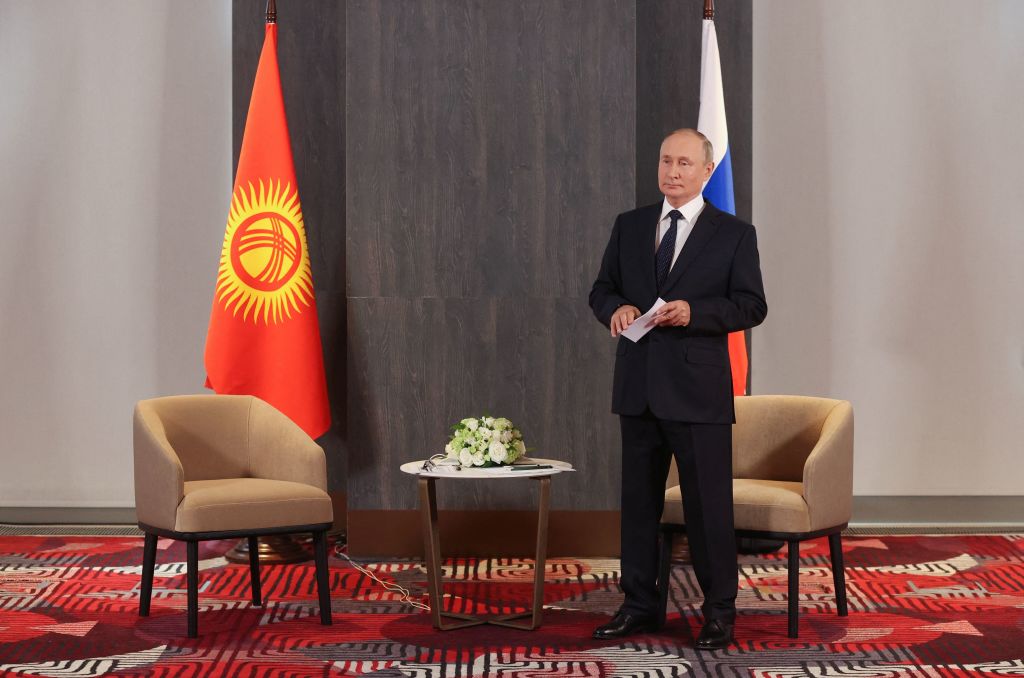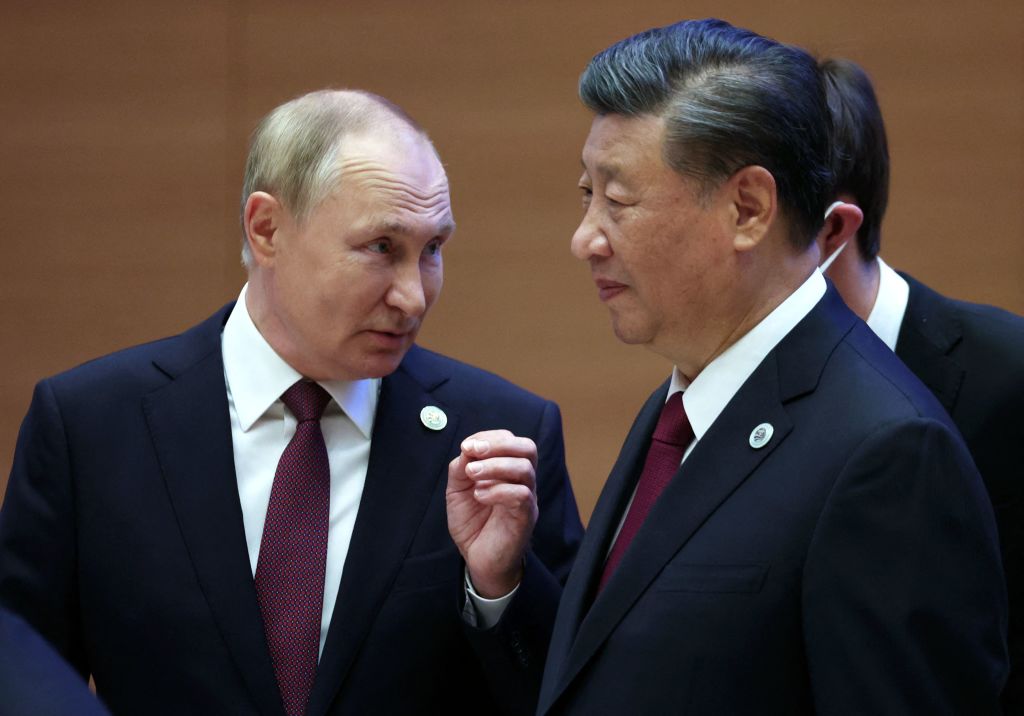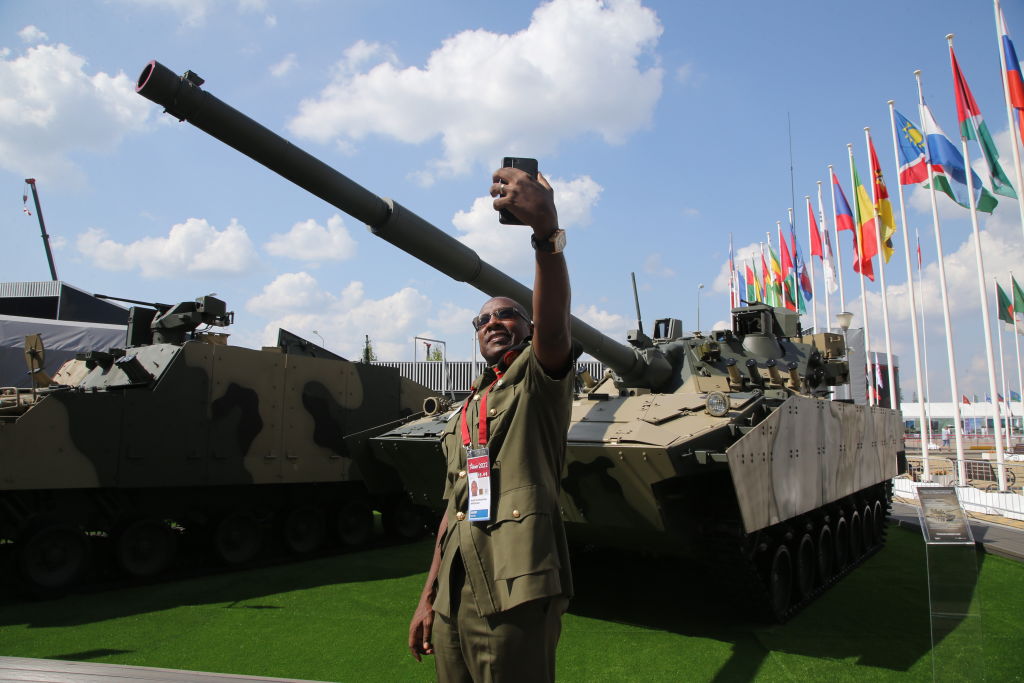
Until Russia invaded Ukraine in February 2022, President Vladimir Putin benefited from the image of being highly successful in his previous uses of force. Indeed, his reputation for successfully using force was so formidable that it was widely expected in the West that Russian troops would quickly overwhelm the Ukrainians. But as we all know, that is not what happened.
Not only has Putin failed to defeat Kyiv, but he has not even been able to keep all his territorial gains in the eastern and southern parts of Ukraine, as the recent ignominious flight of Russian forces in the face of the Ukrainian advance showed. It is not yet clear whether Ukrainian forces will be able to take back even more territory or whether Russia can cling on to what it has seized. Either way, Putin no longer enjoys a reputation for being militarily successful.
Read More: How Ukraine Turned the Tide Against Russia
Already, we have seen Chinese President Xi Jinping go from describing the Sino-Russian relationship as a “no limits” partnership, when he and Putin met just before the Russian invasion, to keeping aloof from the Russian war effort in Ukraine at their recent meeting at the Shanghai Cooperation Organization summit in Samarkand. Unlike America and the West, which have been supplying weapons to Ukraine, China has not been supplying weapons to Russia.
At the same summit, Indian Prime Minister Modi—who has long courted Moscow—publicly rebuked Putin over the Ukraine war. In a less noticed but perhaps even more telling case of a possible snub, the president of Kyrgyzstan—a small former Soviet republic in Central Asia where Russia maintains military forces—kept Putin waiting for over thirty seconds before their public meeting in Samarkand.

Russia’s declining influence
All this has implications. Many governments in the “Global South” (Asia, Africa, Latin America) that initially either expressed support for Putin’s war “against NATO,” or remained neutral, may have done so at first because they thought Russia was going to win in Ukraine, and there was no point in needlessly incurring the wrath of a soon-to-be victorious Moscow. But now, all—except those like Iran and North Korea, which have poor or nonexistent relations with the West—are likely to take their cue from China and India by not expressing support for Putin’s war effort, even if (like Beijing and New Delhi) they take advantage of the opportunity to buy Western-sanctioned Russian oil at a steep discount.
In addition, it does not seem to be a coincidence that the renewal of Azerbaijani military action against Armenia is occurring at a time when Russia is bogged down in Ukraine and cannot be as supportive of Armenia as it has previously been in the decades-long grudge match between these two former Soviet republics. Russia has also been unable to pay much attention to resolving the recent flare-up in fighting between Kyrgyzstan and Tajikistan in former Soviet Central Asia.
Read More: Russia’s War in Ukraine Spells Disaster for Central Asia
The longer the war in Ukraine goes on, the less able Moscow may be to tamp down conflict in the former Soviet space. This will be especially ominous for Putin if Muslim opposition groups in Chechnya and elsewhere in the North Caucasus see Putin’s quagmire in Ukraine as an opportunity for them to renew their rebellions.
Since Russian forces first intervened in Syria in 2015, Middle Eastern leaders have often noted how Putin stoutly defends his ally Bashar al-Assad, while the U.S. has failed to prevent the downfall of several of its allies (including the Shah of Iran in 1979, Egypt’s Hosni Mubarak in 2011, and the Kabul government in 2021). But with Russia’s forces unable to prevail against its next-door neighbor Ukraine, Middle Eastern leaders must wonder how much Putin will be able to do for them—a question of special concern to Assad.

Several African governments have been willing to invite Russian private military forces into their countries in order to fight against Islamist groups that Western forces have been unable to defeat. Doing so has also been a popular way of showing their independence from the former colonial powers (especially France) as well as the United States. Even when Wagner forces have not been especially successful in fighting against jihadists, African governments have appreciated how Russia has not questioned them on their human rights records the way that Western governments have.
Now, though, they must worry about how much Russia can do to protect them when Moscow needs more and more resources for the war in Ukraine. Even if it does not withdraw Wagner mercenaries from Africa, Moscow does not seem to be in a position to send more.
Finally, the Ukraine war has disrupted the ability of countries to buy weapons from Russia since Moscow is not only less willing to export weapons when it needs them in Ukraine but is also less able to produce more sophisticated ones due to its inability to import semiconductors and other foreign components for them due to Western sanctions.
All these negative impacts on Russia’s influence abroad will continue so long as the war in Ukraine continues.
Read More: Russia’s Problems Go Far Beyond Putin
If the war in Ukraine sparks turmoil inside Russia, that standing will diminish even further, but may not necessarily lead to increased American influence. Those who sought military support from Russia in the recent past may now turn to China, India, Turkey, or others (including some Western states) who will not question them about democracy and human rights. It is noteworthy that some African governments facing jihadist opposition forces are now turning to Rwanda for military support.
Just as the collapse of communism and of the Soviet Union led to a sharp decline in Moscow’s influence abroad, which took decades for Putin to partially restore, Putin’s inability to prevail in Ukraine may lead to it declining yet again. If so, it is doubtful that a post-Putin leader will be able to restore Russia’s influence in the face of a rising China and India, a permanently hostile Ukraine, and a post-Soviet space where conflict only seems likely to increase.
More Must-Reads From TIME
- Dua Lipa Manifested All of This
- Exclusive: Google Workers Revolt Over $1.2 Billion Contract With Israel
- Stop Looking for Your Forever Home
- The Sympathizer Counters 50 Years of Hollywood Vietnam War Narratives
- The Bliss of Seeing the Eclipse From Cleveland
- Hormonal Birth Control Doesn’t Deserve Its Bad Reputation
- The Best TV Shows to Watch on Peacock
- Want Weekly Recs on What to Watch, Read, and More? Sign Up for Worth Your Time
Contact us at letters@time.com